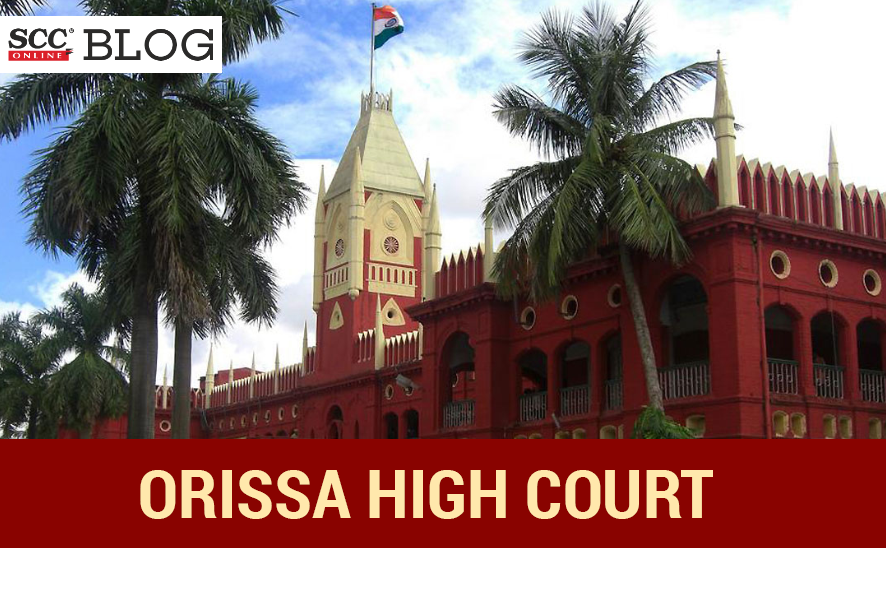Orissa High Court: While disposing of an application for bail in a case involving economic offence, G. Satpathy, J. rejected the bail application based on the enormity of allegations for committing fraud involving more than Rs. 100 crores and the petitioner posing risk of flight.
Facts of the matter reveal that the petitioner was the Managing Director of a non-banking financial company (‘NBFC’) who approached another NBFC seeking financial support for giving loans to different individual entities and Joint Liability Groups. The other NBFC sanctioned two term loans amounting to Rs 5 crores, of which only Rs 50 lakhs was repaid. Allegations also reveal that the NBFC did not utilise the loan amount for the purpose mentioned but embezzled the entire amount by deceiving the others.
The head of organic business of NBFC lodged a First Information Report (‘FIR’) against the petitioner for cheating by using forged documents, records and committing criminal breach of trust by conspiracy. Application under Section 439 of Criminal Procedure Code, 1973 (‘CrPC’) for grant of bail for commission of offence under Sections 406, 420, 467, 468, 471 and 120-B of the Penal Code, 1860. During investigation, the petitioner and others were found to be misappropriating Rs.109 crores by cheating the lenders and investors and mis-utilising their funds by committing forgery.
The Court held that prima facie, the dispute cannot be said to be an inter-corporate dispute between two parties since the investigation revealed investment by several other organisations.
The Court relied on the principles laid in P. Chidambaram v. Directorate of Enforcement, (2020) 13 SCC 791, Prasanta Kumar Sarkar v. Ashis Chatterjee, (2010) 14 SCC 496 and State of Orissa v. Mahimananda Mishra, (2018) 10 SCC 516 regarding factors to be considered for grant or refusal to grant bail.
The Court noted that there is no dispute on registration of FIR against the petitioner in different states, his apprehension after lookout circular, or allegations of financial defalcation, and found all the aforementioned factors to be significantly adverse against the petitioner’s conduct. The Court also took note of the balance between constitutional guarantee of personal liberty and the authority of law enforcement agency for taking a person in custody during investigation of non-bailable offences. In fact, an accused in non-bailable offences may be entitled to bail if such case is made out by the accused, as pointed by the Court.
The Court observed that “Personal liberty of a person is precious, but not absolute in every situation” with reference to Ash Mohammad v. Shiv Raj Singh, (2012) 9 SCC 446. The Court scrutinized Chapter V of CrPC which does not command for routine arrest of accused even in a cognizable offence, leaving the same upon the satisfaction of the police officer for preventing commitment of a further offence. The Court said that the dominant consideration at the time of granting bail is to prevent repetition of the offence.
However, the Court said that “the petitioner in this case was undisputedly found implicated for similar offences in five cases in three different States and, it prima facie appears against the petitioner to prevent repetition of the offence.”
The Court noted that the petitioner was arrested in Orissa and Chhattisgarh border after lookout circular was issued, which has not been denied by the accused and that, his wife being co-accused in this case also stated about registration of cases in different states for similar offences. All these factors weigh heavily against the petitioner suggesting for his non-cooperation with the investigation and reasonable apprehension for avoiding trial and keeping the investigation open.
The Court saidthat “a detailed and meticulous examination of evidence and elaborate documentation of the merit of the case need not be undertaken for bail, however, indication of sound reasoning for the order is needed, since an order devoid of reasoning would suffer non-application of mind.”
Thus, the Court rejected the petitioner’s application for bail due to disclosure of prima facie allegation for commission of economic offence by forging documents and the petitioner’s conduct of the petitioner poses a flight risk.
[Deepak Kindo v. State of Odisha, 2023 SCC OnLine Ori 509, decided on 17-02-2023]
Judgment authored by: Justice G. Satpathy
Advocates who appeared in this matter
For Petitioner: Senior Advocate G. Mishra;
For Opposite Party: Additional Government Advocate S.S. Pradhan, Advocate B.P. Pradhan, Advocate S.R. Mohapatra.






